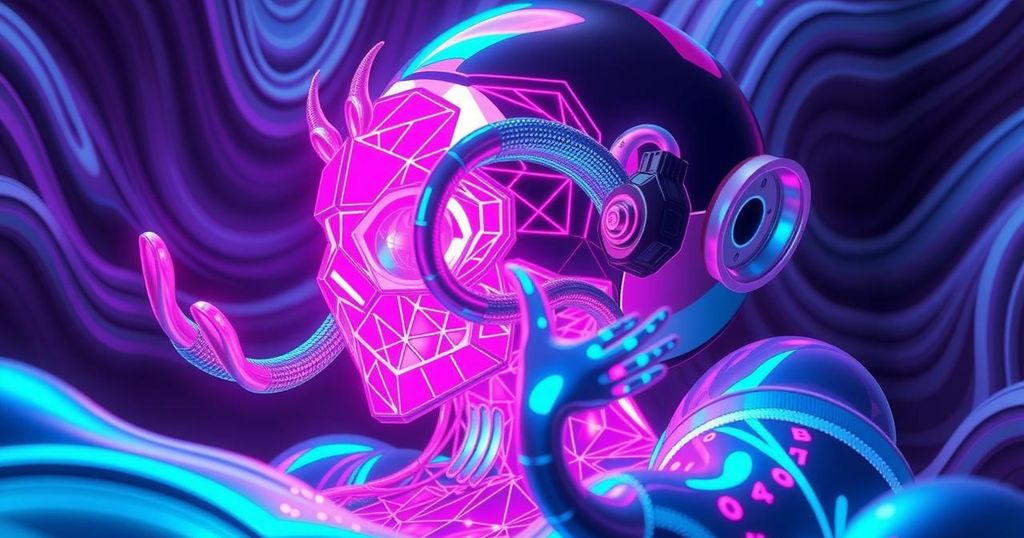OpenAI Unveils Sora Turbo: A New Era in AI Video Generation
OpenAI has launched Sora Turbo, a text-to-video generation software, offering users the ability to make short videos with various resolutions and formats. Accessible to ChatGPT Plus and Pro subscribers, it features tools for creative control and adheres to strict ethical guidelines. The launch follows industry criticism over beta testing practices, amidst rising competition in AI video generation.
OpenAI has unveiled Sora Turbo, its cutting-edge AI-driven text-to-video generation software, a significant advancement in the AI content creation domain. This highly anticipated launch, arriving nearly ten months after its initial reveal in February 2024, is now open for access to subscribers of ChatGPT Plus and Pro plans via sora.com. The rollout coincides with OpenAI’s festive “12 Days of OpenAI” series, increasing user excitement and engagement during the holiday season.
Sora Turbo empowers users to craft videos ranging from 10 to 20 seconds, with flexible resolutions from standard 480p to high-quality 1080p. The platform supports various aspect ratios, accommodating landscape, vertical, and square formats, catering to diverse needs. Notably, it features a storyboard tool, allowing users to fine-tune inputs for each frame, enabling creative control while simplifying the video-making process.
For casual creators, the ChatGPT Plus subscription ($20/month) permits the generation of up to 50 videos per month at 480p resolution. Meanwhile, professional users can opt for the Pro plan ($200/month), providing access to superior resolutions and longer video durations. OpenAI plans to expand its pricing options in early 2025, aiming to better serve a wider range of users.
In response to growing ethical concerns surrounding AI-generated content, OpenAI has implemented stringent safeguards within Sora Turbo, including measures against replicating real individuals or creating explicit material. This initiative reflects an industry-wide recognition of the moral implications associated with AI-generated media.
The launch came on the heels of a public debate ignited by the premature leak of Sora’s software on the AI code-sharing platform, Hugging Face, which cast shadows on OpenAI’s beta testing approach. A group known as Sora PR Puppets criticized the program’s rollout, arguing that the framework fails to support artists adequately, stating, “We are sharing this to the world in the hopes that OpenAI becomes more open, more artist friendly and supports the arts beyond PR stunts.”
Sora Turbo’s public entry arrives amid a proliferation of competitors in the AI video generation arena, with companies like Luma AI, Kling, Hailuo, and Tencent stepping up their game.
The emergence of AI-powered video generation software marks a transforming era in content creation, which blends technology with artistic expression. OpenAI has been at the forefront, developing tools like Sora Turbo to democratize video production for both casual users and professionals. This latest release comes during a time of heightened awareness regarding ethical practices in AI, underlining the balance between innovation and responsibility. The competitive landscape continues to expand, mirroring the industry’s dynamic nature and the escalating demand for accessible creative solutions.
In summary, Sora Turbo stands as a landmark achievement in AI-driven video creation, offering unprecedented tools and flexibility for users. The launch reflects a commitment to responsible innovation, safeguarding against potential ethical issues while catering to diverse creator demographics. As OpenAI navigates the complexities of competition and user needs, the Sora Turbo platform is poised to shape the future of video generation, inviting more creators to explore the limitless possibilities of AI in storytelling. The company appears dedicated to refining its offerings based on user feedback and market demands, solidifying its role in the evolving content landscape.
Original Source: www.pymnts.com




Post Comment